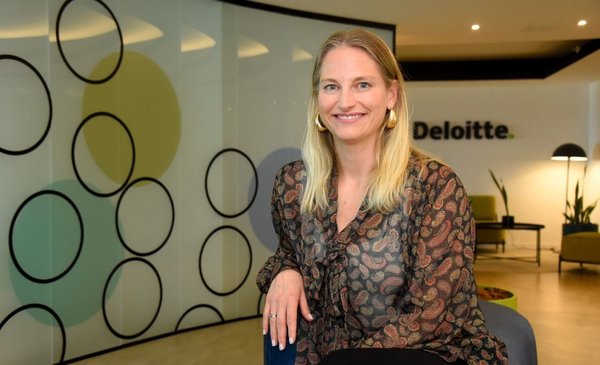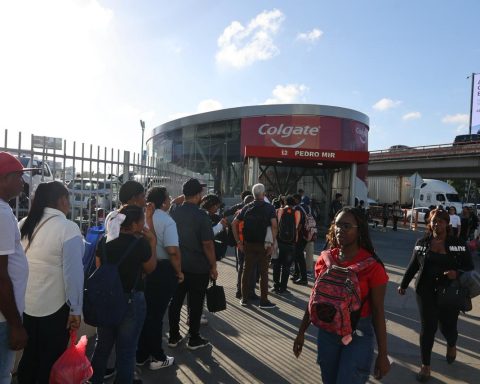Every year the consulting firm Deloitte carries out an investigation from which it emerges the Global Human Capital Trends reportin this 2023 the focus was on the new foundations for a world without borders.
To learn more about this report Coffee & Business spoke with Lucía Muñoz, lead partner of Deloitte’s Human Capital Consulting Department.
“What we do is be able to identify which are the big trends that appear in the year and that are key to what is going to set the agenda in relation to talent,” explains Muñoz.
One of the great trends for this year could already be seen in a Deloitte and Fortune study. In the words of Muñoz, when company leaders are asked what can harm business strategy, on average, the main factor has to do with the lack of talented skills. “It’s not just the talent shortage, but the skill shortage in a world where I don’t know what I’m going to need” since everything is in constant motion, she argues.
Within this framework, there are different trends that describe a world that has no limits between the organization and its ecosystem, and also “between one role and the other,” says Muñoz.
The partner of the Human Capital Consulting department maintains that there are currently many changes in relation to the way we work, “we also have challenges that have to do with well-being, with remote work or not and how people are related to the organization”, explains Muñoz in reference to topics such as “the great resignation”, “the great exhaustion” or “the silent resignation”, which appears when the employee continues in the organization, but doing the essential minimum.
This leads companies to try to retain their employees, but above all to ensure that they have the skills that the company needs today, but also those that it needs in the future. “How do I attract them, retain them and at the same time commit them to the organization’s life cycle in a context in which planning is increasingly difficult because disruptions come strongly,” Muñoz emphasizes.
global trends
This year the report was divided into three chapters. The first is focused on the organization’s need to generate constant research thinking, to anticipate the uncertain future and draw up strategies.
The second chapter deals with the relationship between the organization and its collaborators, its context and its environment. Meanwhile, the third chapter has to do with putting the person at the center (and their relationship with technology as an enhancer of people’s work).
On the other hand, one last trend that transcends the rest and talks about the ability to lead in a fast-paced world.
“One of the first major trends has to do with something that may sound distant, but it is not: the change to focus the organization on skills, instead of jobs or work positions,” reflects Lucía Muñoz. By the way, the member assures that it is increasingly common for companies to work in work cells, putting together teams for who has this or that skill or who is interested in learning about a certain issue.
“The difference is that more and more organizations stop focusing on that definition of an established role and start hiring based on skills,” says Muñoz, adding: “What before could be the most important thing had to do with what title the person had or what experience they brought, is moving towards the skills and characteristics that the person has”, details the specialist in Human Capital. In turn, the company generates retention opportunities through training and the development of new skills.
Another trend is focused on stopping thinking only of staff workers to go towards talent ecosystems. “The perspective that a young person has regarding how long he is going to stay in the organization is less and less and really begins to reduce,” emphasizes Muñoz. For this, connecting with different organizations and sources of work is important.
In fact, according to the expert, there are more and more collaborators who prefer to work on their own and respond to several employers. This implies a challenge for organizations that must achieve the same level of commitment with everyone.
Deloitte
“More and more organizations stop focusing on that definition of an established role and start hiring based on skills,” says Muñoz.
The importance of having a why
A third of “Generation Z” and “Millennials” would leave their jobs today even without having another job option because they were not involved with the purpose of the organization. Two out of five of them have rejected a job because it did not align with their values, according to the report. “Working on that connection between the organization’s values and what people want to impact becomes absolutely key,” remarks Muñoz, noting that 84% of the managers who were surveyed this year affirm that the involvement of collaborators with that purpose is “very important” to the success of their organizations. However, only 17% state that they are prepared to address this issue.
Technology is another of the key points of the report. In this sense, Muñoz points out that the theory that technology will replace people is becoming increasingly blurred. “At the end of the day, the essence of innovation and those absolutely human aspects are what make an organization ready for disruptions,” says Muñoz. In this sense, the report shows that all companies are seeking to enhance the human factor through technology.
Within this framework of a disruptive world that is dragging the consequences of the pandemic, leadership has changed. “We went from leaders who needed to have a much more marked authority to others who began to understand that working in symphony with other leaders and collaborating was the most important thing to evolve,” says Muñoz.
Later, the resilient leader of the pandemic connected with the most humane part of his employees and currently governs a context of economic slowdown that demands another look. “The current leader understood that he must connect from the emotional part, but today he also has to work on efficiencies and generate more productivity,” Muñoz develops.
The Human Capital social group underlines that leading in a world without borders implies working collectively, empowering and empowering people, and being the person who connects in a much more dynamic matrix than the one that existed before. “That constant balance between organizations that are productive but that create a workforce that requires purpose and belonging, that balance makes different leaders,” she concludes.
The magnifying glass in Uruguay
This latest edition of Deloitte’s 2023 Global Human Capital Trends report reports on a phenomenon that began to become visible in recent editions, as organizations and countries become more globalized, trends align with different markets. ; The same thing happened in Uruguay, which sees its human capital reflected in the same axes that are seen globally.


















